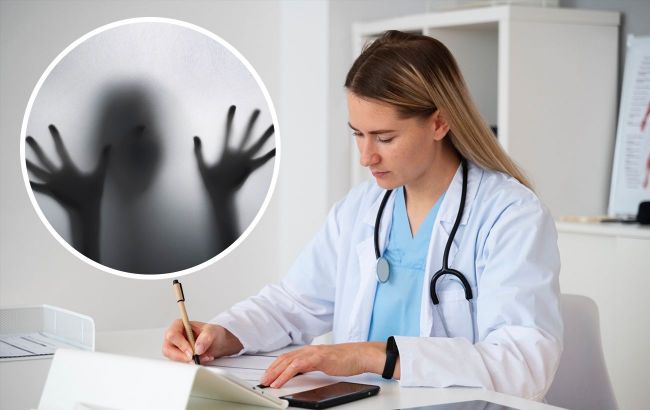Scariest diseases in world: Alien Hand Syndrome, fish odor, werewolf
 Scientists have named the world's scariest diseases (Collage by RBC-Ukraine)
Scientists have named the world's scariest diseases (Collage by RBC-Ukraine)
There are many very strange and even terrifying diseases in the world. They can be unique and diagnosed in only a few people on the planet, with doctors not even having treatment options for them, according to Daily Star.
Extremely rare diseases have puzzled scientists for many generations, as some of them still have no treatment today.
Such diseases affect fewer than 200,000 people on the planet. These include: elephant man syndrome, alien hand syndrome, and a disease that makes patients look like werewolves.
Elephant Man Syndrome
Elephant Man Syndrome, also known as Proteus Syndrome, was highlighted in the 1980 Hollywood film The Elephant Man. It is based on the real-life story of Joseph Merrick, a man with severe deformities who lived in London in the late 1800s and died at the age of 27.
This incurable condition causes abnormal growth of bone tissue in certain parts of the body and can spread rapidly between the ages of 6 and 18 months.
Caused by a faulty gene, developmental abnormalities grow on the skull, abdomen, arms, and legs or around them. Lifespan ranges from a few months to 30 years.
Werewolf Syndrome
This syndrome causes uncontrolled hair growth over the entire body, including the face. Also known as congenital lanuginous hypertrichosis (CLH), the condition is observed from birth, with symptoms appearing in early childhood.
The hair can grow up to 5 cm long, but it may be longer in more severe cases. It is believed to be a hereditary genetic disorder. There is no cure for it, but patients can manage the signs and symptoms through shaving, waxing, bleaching, trimming, or plucking the hair.
Walking Corpse Syndrome
Also known as Cotard's Syndrome, this rare condition causes people to believe that parts of their body are missing or that they are dead or dying.
There are approximately 200 documented cases worldwide. The cause is unknown, although experts suggest that it may be a symptom of a deeper neurological issue.
Alice in Wonderland Syndrome
Alice in Wonderland Syndrome was named in 1955 by British psychiatrist and doctor John Todd, as patients experience sensations of their bodies becoming larger or smaller, similar to the character in Lewis Carroll's famous book.
This condition, also known as Todd's Syndrome or dysmetropsia, gives patients a severely distorted self-image, making them feel that their head and hands either disproportionately enlarge or shrink.
People with Alice in Wonderland Syndrome also perceive objects as being of incorrect size and shape, appearing larger or smaller than they actually are.
They may also experience distortions related to distance, such as seeing a relatively short corridor as endless. From 1955 to 2015, only 169 cases have been described in medical literature.
Alien Hand Syndrome
Alien Hand Syndrome (AHS) is a disorder in which a person's hand moves on its own. It is also known as Dr. Strangelove Syndrome, where the hand, most often the left, moves and performs actions without the person's awareness.
The hand may move independently to perform tasks, such as scratching or unbuttoning a pajama, without the person's knowledge. One patient reported that the alien hand occasionally tried to strangle her.
Fish Odor Syndrome
Fish Odor Syndrome, also known as trimethylaminuria, is caused by a defect in the FMO3 gene.
This hereditary condition causes the accumulation of trimethylamine, a compound that gives a strong smell to rotten fish and other marine creatures.
Since people with trimethylaminuria cannot metabolize this compound, large amounts accumulate in their urine, sweat, and breath, causing them to smell like fish.
There are no other symptoms of the disease, but it can lead to serious psychological and emotional problems.
There is no cure for Fish Odor Syndrome, but treatment may include dietary changes, acidic soaps, probiotics, activated charcoal, lotions, and vitamin B12 supplements.

